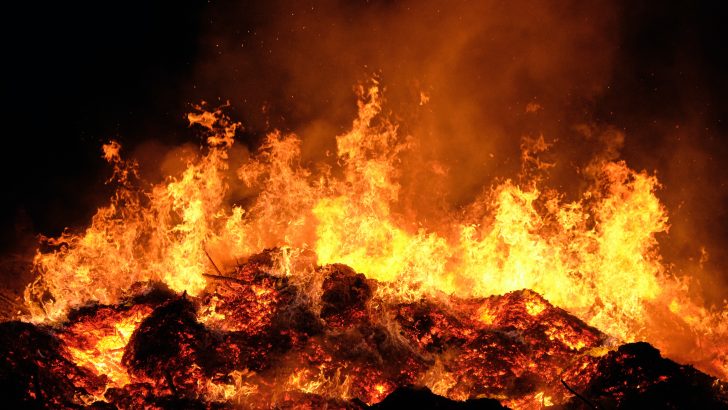Everyday Philosophy
Imagine two firefighters. Lynda regularly puts herself in danger, entering burning buildings to perform difficult rescues that others are too afraid to. Lynda isn’t reckless: she’s extremely competent and only tries rescues that she thinks have a good chance of success. But she is fearless, or close to it: fear for her is a fairly mild feeling, and she doesn’t let it stop her doing her job. Lynda takes this same fearlessness into the rest of her life: she doesn’t get paralysed by nerves in social situations, and she eagerly seizes opportunities that others find intimidating. To her, this is easy: she relishes being the sort of person she is and is happy about the good things her fearlessness enables her to do.
He does his best to emulate Lynda’s behaviour in the rest of his life too, and his actions are generally courageous ones”
To outward appearances, her colleague Edgar is just as fearless – he puts himself into situations just as dangerous, often serving as Lynda’s backup. But unlike Lynda, Edgar finds this horribly difficult. Each and every burning house he goes into terrifies him, and he has to push down fear every time in order to do his job. But he’s successful: he’s just as competent a firefighter as Lynda. He is determined to use that skill for the good of others, even though doing so puts him through the wringer. He does his best to emulate Lynda’s behaviour in the rest of his life too, and his actions are generally courageous ones. But again, he always has to fight – with difficulty – past anxiety and fear: he knows that taking brave actions are objectively good and that giving into his fear would make his life worse, but he finds it much more unpleasant than Lynda does.
Who is more admirable? Which of them is braver? The answer to this divides philosophers.
On the one side is Immanuel Kant. Kant believed that acting from moral duty alone is the purest and highest motive. If you do something good because you enjoy it, you deserve less credit. On the other side lies Aristotle: his view was that someone who does good with difficulty is not fully virtuous, though they’re on the right track. It’s better to love the good that you do, to freely and easily perform good actions, than it is to struggle every time.
Praiseworthy
Each of these positions has intuitive plausibility. More difficult feats do seem more praiseworthy. But we also think that there’s something admirable about ease in virtue too: a person who easily and genuinely speaks kindly to others is more admirable than a person who says their kind words through gritted teeth.
At the risk of trying to square a circle: perhaps there’s something to both Aristotle’s view and Kant’s. There are, after all, different kinds of admiration. When I see the Grand Canyon, I am impressed and awed, but I’m not inclined to give the rocks credit for being beautiful. So perhaps Lynda’s courage is more impressive and worthy of admiration in the way the Grand Canyon is, but Edgar should get more moral credit. That difference is important, but it doesn’t capture the whole of it though. We don’t want to imitate the Grand Canyon or take it as a role model, but Lynda is, plausibly, more worthy of imitation than Edgar. If we could choose a version of courage to try to aim for it would be hers: the state that Lynda is in seems like a better state to be in.
Limits
At this point, the limits of my thought experiment begin to show themselves. What it leaves out is the story of how Edgar and Lynda got to be like this. It could be that Edgar and Lynda were naturally predisposed to be the way they are now from childhood. In that case, we might say that Edgar is more worthy of praise even though Lynda is in a better state: he’s had to work harder to improve from his baseline. But it might be that Lynda and Edgar started off equally fearful. Lynda has simply been practising doing brave things for longer, and eventually came to love being courageous and find it easy. Here she would be more admirable in both ways. It also matters whether Edgar’s anxiety is more like a character trait that can be changed through habit-forming, or more like a psychological condition which is mostly out of his control.
That in our lives we rarely know the full stories of those around us should, if nothing else, inspire us to be charitable in our judgments”
Regardless, the way Lynda is now is objectively better, but the credit we give to each for their current level of courage depends on how they reached the place they are now. How much credit we give them depends on the extent to which we know their story. That in our lives we rarely know the full stories of those around us should, if nothing else, inspire us to be charitable in our judgments.


 Ben Conroy
Ben Conroy
